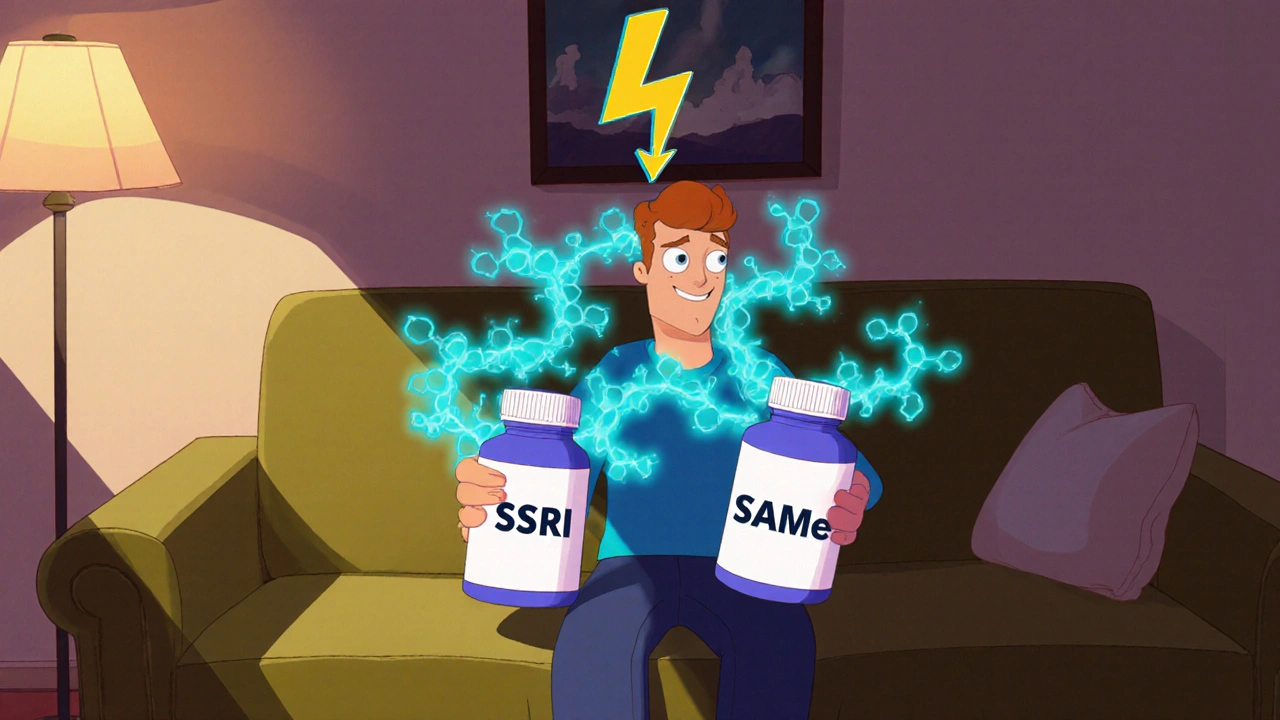SAMe: What It Is, How It Works, and What You Need to Know Before Taking It
When you hear SAMe, a naturally occurring compound in the body that helps regulate mood, joint function, and liver health. Also known as S-adenosylmethionine, it’s not a drug—but many people take it like one, hoping for relief from depression, arthritis, or fatigue. Unlike prescription meds, SAMe isn’t regulated the same way in Canada, which means quality and dosage can vary wildly between brands. That’s why so many people end up confused—or worse, disappointed—after trying it.
SAMe works by donating methyl groups in your body, a process that affects brain chemicals like serotonin and dopamine, plus the production of cartilage and detox pathways in the liver. It’s not magic, but studies show it can help with mild to moderate depression, sometimes as well as standard antidepressants, without the same side effects like weight gain or sexual dysfunction. For osteoarthritis, it may reduce pain and stiffness, especially in the knees, by supporting joint tissue repair. And for liver issues—like those caused by alcohol or medications—it can help improve bile flow and reduce inflammation. But here’s the catch: it doesn’t work for everyone. And if you’re already on antidepressants, blood thinners, or Parkinson’s meds, SAMe can interact dangerously. People with bipolar disorder should avoid it entirely—it can trigger mania.
Most people take SAMe on an empty stomach, usually 400 to 1600 mg a day, split into doses. But the form matters: enteric-coated tablets survive stomach acid better and are more effective. You might not feel results for 2 to 4 weeks, which is longer than most expect. And while some users swear by it, others see nothing. That’s because genetics, diet, and existing health conditions all influence how your body uses SAMe. If you’re considering it, talk to your doctor first—especially if you’re on other meds. Many of the posts below dive into real-world experiences, interactions with drugs like SSRIs or blood pressure pills, and how to spot if it’s actually helping—or just costing you money.
Below, you’ll find honest reviews, safety checks, and comparisons with other supplements and treatments. Whether you’re looking for alternatives to antidepressants, ways to ease joint pain without NSAIDs, or clues about why your liver enzymes are high, these articles cut through the hype and show you what actually works—and what doesn’t.
SAMe and Antidepressants: What You Need to Know About Mood Effects and Interaction Risks
SAMe may help with mild depression and joint pain, but combining it with antidepressants carries serious risks like serotonin syndrome. Learn the facts, side effects, and safe usage tips.
